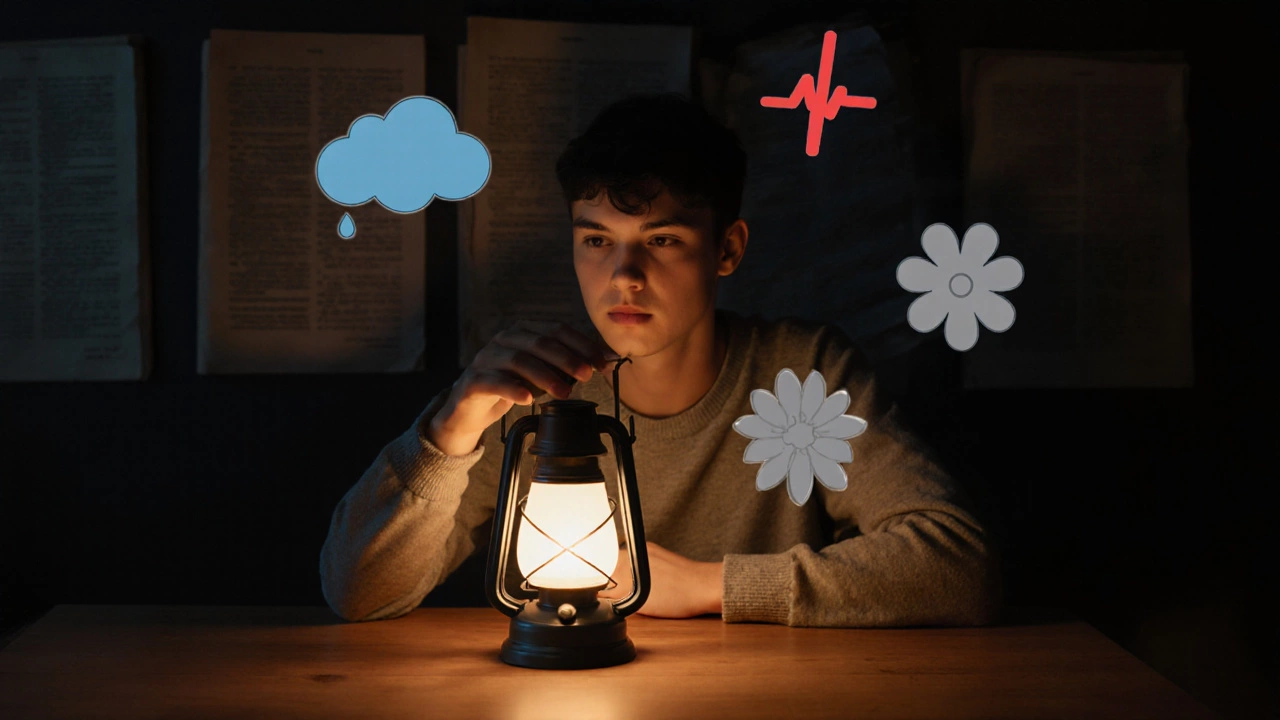Understanding mental health symptoms: Guides, Counseling, and Therapy Options
When dealing with mental health symptoms, observable signs that may indicate emotional, psychological, or behavioral issues. Also known as psychological symptoms, they often appear as changes in mood, sleep, appetite, or concentration. Recognizing these signs early can steer you toward the right help.
One of the first steps after spotting a symptom is a mental health assessment, a structured evaluation that maps out the severity and possible causes. The assessment typically involves questionnaires, interviews, and sometimes physical checks to rule out medical factors. By gathering concrete data, clinicians can decide whether counseling or deeper therapy is needed.
How symptoms guide treatment choices
When a symptom points to stress or situational anxiety, short‑term counseling often suffices. Counselors focus on problem‑solving, coping skills, and immediate support. In contrast, persistent patterns like chronic depression or trauma usually call for psychotherapy, which delves into underlying thoughts and behaviors over multiple sessions. Both approaches share the goal of reducing symptom impact, but they differ in depth and duration.
Therapy length isn’t one‑size‑fits‑all. Factors such as symptom intensity, personal goals, and available resources shape how long treatment lasts. Some people find relief after a few focused sessions, while others benefit from longer, structured programs. Understanding that timeline helps set realistic expectations and keeps motivation high.
Another key player is psychotherapy, which includes methods like cognitive‑behavioral therapy (CBT) and dialectical behavior therapy (DBT). These techniques target thought patterns that fuel symptoms, teaching patients to reframe negative ideas and develop healthier habits. Research shows that when psychotherapy aligns with specific symptom profiles, success rates improve dramatically.
Symptoms also influence medication decisions. For example, severe anxiety symptoms may lead a doctor to prescribe short‑term anxiolytics alongside therapy. However, medication alone rarely resolves the root cause; it works best when paired with counseling or psychotherapy. This combined approach reflects the semantic triple: mental health symptoms require comprehensive treatment.
Many people wonder whether they need professional help at all. A useful rule of thumb is to seek assessment if symptoms linger more than two weeks, interfere with daily life, or cause significant distress. Early intervention can prevent escalation and reduce the overall burden of mental health issues.
Support networks play a hidden yet powerful role. Friends and family who recognize symptoms can encourage assessment and help maintain treatment adherence. Their involvement often improves outcomes, especially when the patient feels understood and less isolated.
In the collection below you’ll find practical guides on counseling vs. therapy, tips for choosing the right mental health professional, and detailed explanations of how long therapy typically lasts. These resources aim to translate the concepts we’ve discussed into actionable steps you can take right now.







